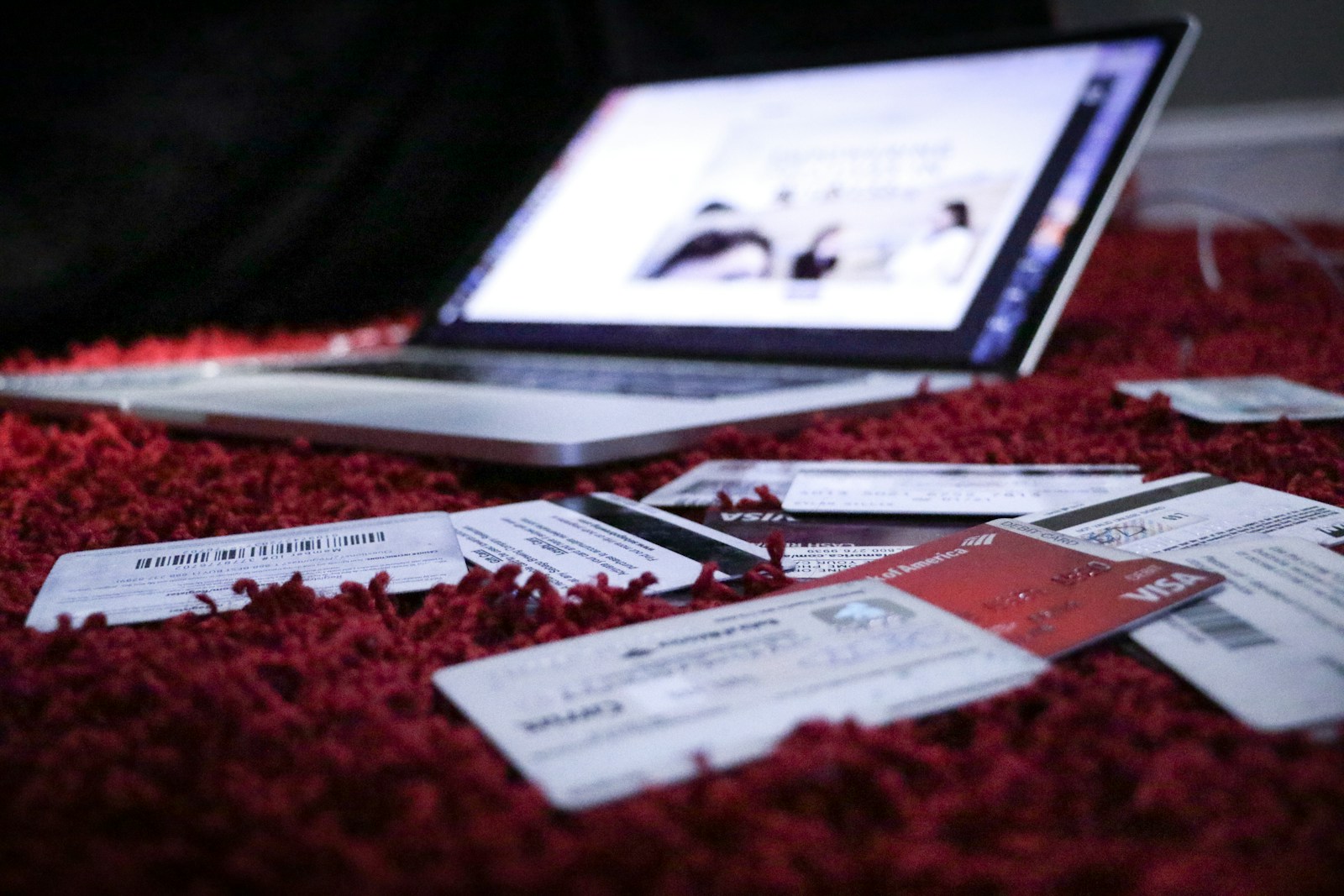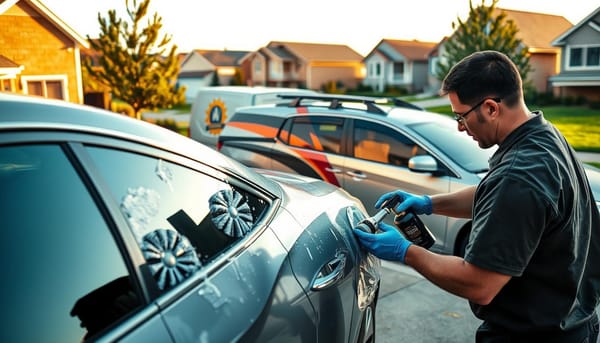A Guide to Home Buying for Freelancers and Gig Workers

As a freelancer or gig worker, you know the freedom of controlling your schedule and choosing your own projects. But when it comes to buying a home, the irregular income typical for independent contractors can make financing challenging. Don't let the bank say no before you've started! This guide will provide essential financial tips to prep your finances and improve your chances of getting approved for a mortgage as a freelancer or gig worker.
With some strategic planning and financial management for home buying for freelancers, you can position yourself to become a homeowner, even without the steady paycheck that comes with traditional employment. Get ready to learn the secrets that will turn your flexible income into the foundation for buying your dream home!
Assess Your Finances as a Freelancer
To understand how much you can afford for a mortgage, you need to analyze your freelance income and expenses. Track your earnings and spending over the past two years to determine your average monthly income and costs. Be conservative in your estimates of future income since freelance work can be unpredictable.
Calculate your income
Tally your total earnings from the past two years and divide by 24 to determine your average monthly income. Don’t include any one-time payments or irregular income surges in your calculation. It’s best to use a lower figure to ensure you can make regular mortgage payments even during slow periods.
Analyze your expenses
Review your bank and credit card statements to see what you’re spending each month on essentials like housing, food, transportation, and debt payments. Trim any unnecessary expenses before applying for a mortgage. Lenders typically want your total debt payments to be no more than 36% of your income.
Determine how much you can afford
Most experts recommend spending no more than 28% of your monthly income on housing costs. So if your income is $5,000 per month and expenses are $2,000, you can likely afford mortgage payments of around $1,400. You’ll also need to factor in taxes, insurance, and any homeowners association fees for the properties you're considering.
Using conservative income estimates and disciplined budgeting, many freelancers can achieve home ownership. But go in with realistic expectations about what you can afford so you don’t end up house poor. Your dream home will still be there when your income and savings have grown. With hard work and patience, you'll get there.

Build Your Credit Score
To qualify for a mortgage, you'll need a solid credit score. As a freelancer, your income may fluctuate, so building your credit is key. Check your credit report and score at least once a year to ensure there are no errors. If needed, work to improve your score by paying bills on time, limiting new applications for credit, and keeping low credit card balances.
Pay Bills On Time
Payment history is the largest component of your credit score. Set up automatic payments for bills or schedule reminders to ensure payments are never late. Even one late payment can drop your score significantly.
Limit New Credit Applications
New credit inquiries can lower your score temporarily. Only apply for new credit when needed. If seeking a mortgage, apply for preapproval first before allowing the lender to check your credit. Multiple mortgage inquiries within a short period are counted as one inquiry.
Maintain Low Credit Card Balances
Keep balances low on your credit cards, ideally less than 30% of your limits. Maxing out cards can hurt your score and make you appear risky to lenders. Pay off the full balance each month if possible.
By building your credit over time through responsible habits, freelancers and gig workers can achieve scores sufficient to qualify for a mortgage and buy a home. Staying on top of your credit and maintaining good practices will serve you well for years to come.
Home Buying for Freelancers: Determine Your Affordable House Budget
To determine how much house you can afford as a freelancer, you must evaluate your income and expenses. As a self-employed worker, your income may fluctuate, so examine your average monthly income over the past two years. Take 70% of that figure as your maximum affordable mortgage payment.
Income
Add up all sources of income, including freelance work, side jobs, and investments. Be conservative in your estimates, as you cannot guarantee future income amounts. It is best to underestimate rather than overestimate.
Debts and Expenses
List all current debts (credit cards, loans, etc.) and essential monthly expenses (utilities, groceries, etc.). Total minimum debt and expense payments. Your remaining income after accounting for these items is your maximum affordable mortgage.
Down Payment
Most lenders require a 20% down payment for self-employed borrowers. Save as large of a down payment as possible, as it will lower your interest rate and monthly payment. Put down at least 20% of the purchase price to avoid private mortgage insurance.
Interest Rate
Interest rates for self-employed individuals are often higher. Check your credit score and report for any errors before applying for a mortgage. Take steps to improve your score if needed. A higher score means a lower interest rate, which saves you thousands over the life of the loan.
Pre-Approval
Get pre-approved for a mortgage before house hunting. Provide tax returns, bank statements, and financial records to substantiate your income claims. The pre-approval amount is the maximum you can afford. Stay within that limit to avoid becoming “house poor”.
With discipline and careful financial planning, you can achieve the dream of home ownership as a freelance or gig worker. Determine what you can afford, find the right property, and enjoy building equity in a place you can call your own.
Choose the Right Mortgage for Your Situation
Fixed or Adjustable Rate
As a freelancer, your income may fluctuate, so you need to consider whether a fixed or adjustable-rate mortgage (ARM) is right for you. A fixed-rate mortgage provides stability with the same interest rate for the life of the loan. However, if interest rates drop significantly, you could be locked into a higher rate.
An ARM usually offers a lower initial rate, but the rate and payments change over time based on the market. This could save you money initially but your payments could increase a lot if rates go up. Evaluate your risk tolerance and how long you plan to stay in the home.
Conventional or Government-Backed
Conventional mortgages are offered by private lenders and typically require a 20% down payment. Government-backed mortgages, like those offered by the Federal Housing Administration (FHA) or U.S. Department of Veterans Affairs (VA), allow down payments as low as 3.5% for FHA loans.
However, they come with additional restrictions and fees. FHA loans limit the amount you can borrow and charge higher interest rates. VA loans are only for veterans, service members, and eligible surviving spouses.
Loan Terms
Most mortgages come with 15- or 30-year terms. A shorter term like 15 years means higher payments but less interest paid overall and a faster payoff. A 30-year term has lower payments but higher lifetime interest costs. As a freelancer, a 30-year mortgage may give you more flexibility in case your income changes. You can always make additional principal payments to pay the loan off early and save on interest.
Pre-Approval
Getting pre-approved by a lender before you start house hunting is essential. A pre-approval letter will show home sellers you are serious, and it will give you more leverage to negotiate. Come prepared with your tax returns, bank statements, and financial projections to help the lender evaluate your freelance income during the underwriting process. This will determine how much you can borrow and the interest rate you may qualify for.
Evaluate both your current financial situation and future goals to determine the right mortgage option for your needs as a freelancer. Do your research and understand the pros and cons of different mortgages so you can find one that balances your risk tolerance, budget, and homeownership dreams.
Research and Compare Lenders
Choosing a mortgage lender is one of the most important financial decisions you will make as a freelancer. Do extensive research on multiple lenders to find the right one for your needs.
Interest Rates and Fees
Compare interest rates, loan terms, and lender fees across lenders. Even small differences can save thousands over the life of the loan. Look for lenders offering competitive rates for self-employed borrowers.
Loan Programs
Research which lenders offer programs tailored to the self-employed, such as alternative income documentation loans. These programs may provide more flexible underwriting for freelancers. Some lenders also offer grants and down payment assistance programs for self-employed buyers.
Documentation Requirements
The documentation required to qualify for a mortgage varies significantly between lenders. Some require one or two years of tax returns and bank statements to verify your income, while others may want additional financial records for freelancers. Choose a lender with documentation requirements you can meet to avoid delays or denials.
Customer Service
Look for reviews on the quality of each lender’s customer service. As a freelancer, you want a lender that will guide you through the complex mortgage process and respond quickly to any questions or concerns. Poor customer service can make the already stressful process of buying a home even more difficult.
Researching lenders and comparing their rates, fees, programs, documentation requirements, and customer service will help you find the right match. While it takes time upfront, finding the right lender for your unique needs as a freelancer will make the mortgage process much smoother overall. With the right lender behind you, you can focus on finding your perfect new home.

Find the Perfect House Within Your Budget
As a freelancer, your income may fluctuate from month to month, so determining an affordable budget for a home is essential. Before beginning your search, analyze your finances to calculate how much you can afford to spend on housing each month while still covering all regular expenses. A good rule of thumb is that your total housing costs should not exceed 28% of your annual income.
Calculate Your Down Payment
The larger your down payment, the lower your monthly mortgage payments will be. As a freelancer, aim for at least a 20% down payment on the total purchase price. This will allow you to qualify for a conventional mortgage with a lower interest rate. If needed, you may want to spend time building up your savings to reach the 20% threshold before starting your home search.
Pre-Approval For A Mortgage
Getting pre-approved for a mortgage shows home sellers you are a serious buyer. It also allows you to know exactly how much you can borrow so you can focus your search on homes within your budget. Provide the lender with details about your freelance income and expenses. They will evaluate your financial situation to determine how much you can qualify to borrow.
Consider Adjustable-Rate Mortgages
An adjustable-rate mortgage (ARM) offers a lower initial interest rate than a fixed-rate mortgage. The lower initial payments may be easier to afford. However, the interest rate and payments can increase substantially in the future. Only choose an ARM if you plan to sell the home before the initial fixed-period ends.
By determining an affordable budget, saving enough for a sizable down payment, getting pre-approved for a mortgage, and considering alternative mortgage options, you can find a home suited to your needs as a freelancer. Staying within the guidelines of what you can afford will set you up for success as a homeowner. With diligent financial planning, freelancers and gig workers can achieve the goal of home ownership.
Gather Documents Needed to Apply for a Mortgage
Income Documentation
As an independent worker, verifying your income can be challenging for mortgage lenders. Gather several years of tax returns, 1099 and W-2 forms, bank statements, and records of any freelance or contract work payments to establish your income history.
Credit Score and Report
Obtain a free credit report to check for any errors and see your current score. Scores above 620 are considered good, but aim for at least 680 to qualify for a mortgage. Pay off any high-interest debts and limit new applications for credit to improve your score.
Down Payment Funds
Most lenders require a down payment of at least 3 to 20% of the purchase price. Verify funds for your down payment, closing costs, and emergency reserves by providing recent bank statements. Money in savings, investments, gifts, or retirement accounts can be used.
Property Information
Once you have selected a home, the seller will provide property details like the lot size, square footage, amenities, and current zoning. Review this information carefully to determine the property’s fair market value and if it meets your needs before making an offer.
As an independent worker seeking a mortgage, preparation and persistence are key. Compiling thorough documentation of your income and financial standing, maintaining a solid credit score, and verifying funds for a competitive down payment and closing costs will position you as a strong candidate for mortgage approval.
While the process may differ slightly from a traditional borrower, with prudent financial management many freelancers and gig workers can achieve the goal of homeownership. Stay up to date with the latest mortgage rules and rates, and don’t get discouraged if rejected by some lenders. With comprehensive records and the right lender match, you can get approved for a mortgage tailored to your unique situation.
Make an Offer and Negotiate
Once you have found a home you wish to purchase, it is time to make an offer to the seller. Your offer should be based on the asking price of the home as well as the relative values of comparable properties recently sold in the neighborhood. Do research on recent sale prices of similar homes to determine a fair offer price.
As a freelancer, your income and job stability may be hard to verify for a mortgage lender. To strengthen your offer, consider offering a larger down payment, such as 20-25% of the purchase price. This demonstrates your financial commitment to the transaction and may motivate the seller to accept a lower offer price.
If your initial offer is rejected, be prepared to negotiate. You may need to increase your offer incrementally, e.g. in $1,000-$5,000 increments. Do not feel pressured to raise your offer by a large amount all at once. During negotiations, you can also consider offering non-monetary incentives to the seller like waiving contingencies or offering flexible closing and move-out dates.
Once your offer has been accepted, the property will go under contract. At this stage, you will conduct a professional home inspection to check for any major defects. You can still negotiate with the seller to lower the price or have necessary repairs completed. If negotiations break down, you have the option to terminate the contract.
As an independent worker, staying within budget is key. Make a realistic offer based on your financial situation. Do not get caught up in a bidding war that will result in an unaffordable mortgage payment. If needed, be willing to walk away from a deal that does not match your financial goals. With patience and persistence, you can find a home that suits both your needs and budget.
Freelancers looking to buy a home should make a competitive yet affordable offer, be prepared to negotiate in good faith, and not feel obligated to accept terms that do not match their financial means. Following these guidelines will lead to a successful home purchase.
Freelancer Home Buying FAQs
When buying a home as a freelancer, you likely have a number of questions about the process and how your income situation may affect your options. Here are some of the most frequently asked questions from freelancers and gig workers looking to purchase property.
How much do I need for a down payment?
As a freelancer, you may need a larger down payment, typically 20% of the purchase price or more, to qualify for a mortgage. The more you can put down, the better your interest rate and approval odds will be. Some lenders may require up to 25-30% down for freelancers. Save as much as possible for your down payment and closing costs.
Will I qualify for a mortgage as a freelancer?
Freelancers can qualify for mortgages, but you may face more scrutiny of your income and work history. Be prepared to provide extensive documentation of your income over the past two years or more. The lender will evaluate the stability and growth of your income to determine if you qualify. A steady income stream and client base will work in your favor.
How can I make my freelance income work for me?
Take steps to make your freelance income as stable and predictable as possible. Focus on securing long-term clients, contracts, and retainers rather than one-off projects. Maintain a diverse range of clients across industries. Track and document all your income and work activities thoroughly. You may also consider forming an LLC or corporation, which can make your income appear more traditional to lenders. Building your business credit can also help.
The process of home buying for freelancers may require more legwork but with proper planning and preparation, you can achieve the goal of home ownership. Focus on maximizing and stabilizing your income, build your business and personal credit, save as much as possible for your down payment, and find a lender that understands the freelance work style. With these keys steps, you'll be well on your way to finding and financing your perfect freelance home.
Conclusion
As a freelancer or gig worker, homebuying may seem like a distant dream. However, with smart planning and budgeting, it can become a reality. The keys are living within your means, saving aggressively for a down payment, maintaining a stable income history, and seeking lenders familiar with self-employment income.
Homeownership provides valuable stability and equity. By following the financial tips outlined here, you can take the first steps toward buying your own home - no matter your employment situation. With dedication and preparation, you have the power to achieve this milestone.
Gigs Money Tips
Financial Planning tips for Gig Economy Workers.




